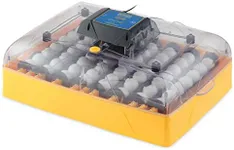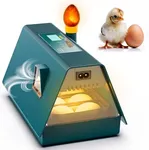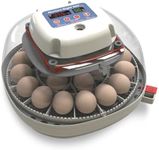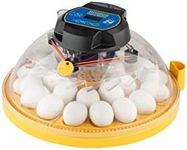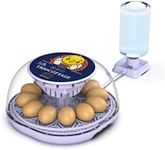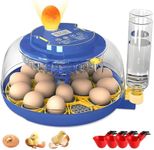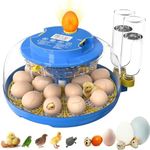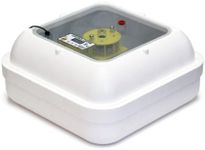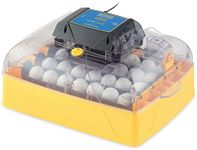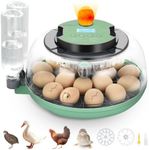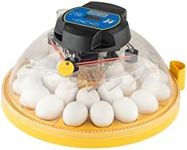Buying Guide for the Best Egg Incubators
Choosing the right egg incubator is important if you want to successfully hatch eggs, whether for poultry, reptiles, or other birds. The right incubator will help you maintain the correct environment for your eggs, making the process easier and increasing your chances of a good hatch rate. When picking an incubator, you should think about how many eggs you want to hatch at once, how much time you can spend monitoring the process, and what types of eggs you plan to incubate. Understanding the key features will help you make a choice that fits your needs and gives your eggs the best chance to develop.CapacityCapacity refers to the number of eggs an incubator can hold at one time. This is important because it determines how many eggs you can hatch in a single batch. Incubators come in small, medium, and large sizes. Small incubators usually hold up to a dozen eggs and are great for hobbyists or those just starting out. Medium incubators can hold a few dozen eggs and are suitable for small farms or more serious hobbyists. Large incubators can hold hundreds of eggs and are best for commercial use or large-scale operations. To pick the right capacity, think about how many eggs you want to hatch at once and how much space you have available.
Temperature ControlTemperature control is the incubator’s ability to keep the eggs at the right warmth for development. This is crucial because even small changes in temperature can affect hatch rates. Some incubators have manual controls, where you set and adjust the temperature yourself, while others have automatic digital controls that keep the temperature steady. Manual controls require more attention and experience, while digital controls are easier and more reliable for beginners. Choose an incubator with a temperature control system that matches your comfort level and the amount of time you can spend monitoring the eggs.
Humidity ControlHumidity control is about keeping the right amount of moisture in the air inside the incubator. This is important because too much or too little humidity can harm the developing eggs. Some incubators have built-in humidity controls, while others require you to add water manually and monitor humidity with a separate gauge. Built-in controls are more convenient and accurate, especially for beginners, while manual systems give you more control if you have experience. Pick a system that matches your experience and the type of eggs you are incubating, as some species need more precise humidity levels.
Egg TurningEgg turning is the process of rotating the eggs regularly to ensure even development. Some incubators have automatic turners that rotate the eggs for you, while others require you to turn the eggs by hand. Automatic turners are helpful if you can’t check the incubator several times a day, while manual turning is fine if you have the time and want to be more hands-on. Consider how much time you can dedicate to the process and whether you prefer convenience or more involvement.
VentilationVentilation refers to how well the incubator allows fresh air to circulate. Good ventilation is important because developing embryos need oxygen and must release carbon dioxide. Some incubators have adjustable vents, while others have fixed airflow. Adjustable vents give you more control, which is useful if you are incubating different types of eggs or live in an area with changing temperatures. Choose an incubator with ventilation that matches your environment and the types of eggs you plan to hatch.
Ease of CleaningEase of cleaning is about how simple it is to take apart and clean the incubator after use. This is important for preventing the spread of bacteria and ensuring healthy hatches. Some incubators have removable trays and smooth surfaces that are easy to wipe down, while others have more complex parts that can be harder to clean. If you plan to use your incubator often, look for one that is easy to clean and maintain.
VisibilityVisibility refers to how well you can see the eggs inside the incubator. Some incubators have clear lids or windows, making it easy to check on the eggs without opening the incubator and disturbing the environment. This is helpful for monitoring progress and for educational purposes. If you want to watch the hatching process or check on the eggs frequently, choose an incubator with good visibility.
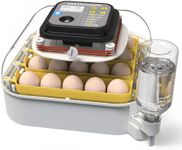
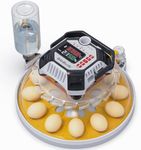
![[2024 Upgrade] 25 Egg Incubator, Au](https://images-proxy.bestreviews.guide/Pj5JtyvJE4xjlvWj96M8kSSalY0=/0x150/https://m.media-amazon.com/images/I/51j9yfTV3DL._AC_CX679_.jpg)
